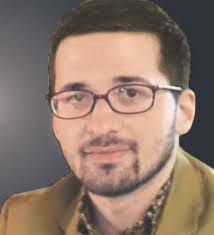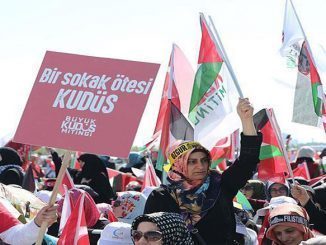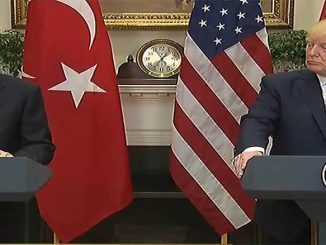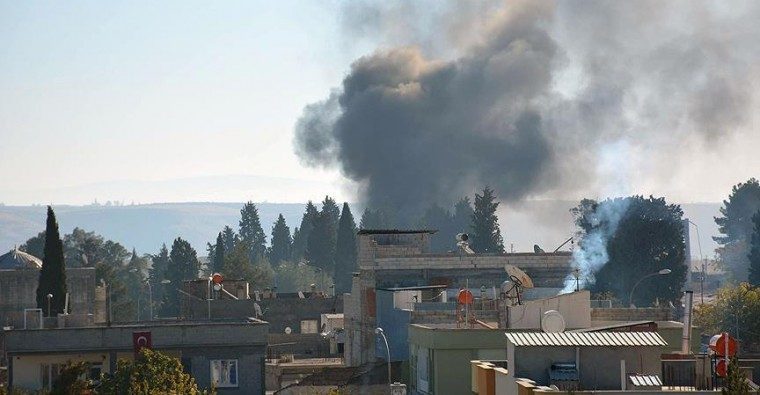
BY: RAGIP SOYLU*
There is an urgent sense in the Obama administration to begin the Mosul operation before a new president comes into office despite remaining major coordination issues. Turkey’s involvement in such an effort is uncertain as Ankara is eager to assist Iraqi forces while Baghdad is annoyed by the Turkish presence in Bashiqa. The Iraqi parliament’s request for Turkey’s withdrawal from the area Tuesday and the problematic wording of the resolution were enough to anger the Foreign Ministry which, in turn, rebuffed Iraqi officials.
Until Turkey is satisfied with the security and safety of Sunni Arabs and Turkmens in the Mosul area, Ankara will ignore the condemnations of Iraqi authorities in the hope that Iraq will work with Ankara rather than chastise Turkish efforts to fight Daesh.
Having said this, it is very clear that American officials don’t want Turkey’s presence in the Mosul operation. The U.S. has its own reasons for this, including Baghdad’s opposing view of Turkey amid Iranian concerns and the pressure of the Popular Mobilization Force on al-Abadi. Iran’s resistance against Turkish influence in the country is enough for Baghdad to take an adamant opposing stance on any Turkish input.
On the other hand, Turkey has its own worries. Sunni Arabs in the Nineveh Governorate willingly accept Ankara’s protection and support as they do not trust Baghdad. Turkey also feels obliged to intervene due to Daish’s past actions against Turkish diplomats in Mosul, which greatly shamed Turkish officials and tarnished Turkey’s image.
The PKK’s presence in Sinjar and their possible attempts to open a new corridor in Syria in response to the Mosul campaign in order to provide access to its sister organization the Democratic Union Party (PYD) while bypassing the Kurdistan Regional Government (KRG) is also a concern for Turkey. American officials who visited Ankara last week assured Ankara that the PKK would not be part of a Mosul campaign but Turkish officials express doubt about these statements.
Finally, the Turkmen city of Tal Afer is a very sensitive spot for Ankara due to its ethnic and religious demographics. There are reports that Daesh has been relocating their logistical sources there, fortifying its defenses. Ankara is concerned about the local population’s safety if an Iran-run militia takes over the city.
To alleviate Turkish concerns, Washington should keep Turkey in the loop and allow former Mosul Governor al-Nujaifi-led and Turkey-trained al-Hashd al-Watani forces to join the campaign. Some reports in the Turkish media have suggested that the U.S. is inclined to accept their participation if they were to come under the command of Iraqi forces. In this context, Turkey’s main priority is to limit the participation of a Shiite militia in the campaign, allowing Sunni forces to join the campaign instead, which would be beneficial for everyone.
Ankara also prefers the active involvement of KRG forces in Mosul but such an approach could backfire considering ethnic tension in the region.
Turkey’s objections to a potential Mosul campaign is enough to illustrate the problems the U.S. is facing in Iraq. Peshmerga forces are in need of equipment and financial support while the Bagdad government has a militia it can barely control, and the PKK has a free hand in Sinjar and is more than happy to annex more territory, Sunnis in Mosul are suspicious of a Shiite invasion, and other Sunni Arabs who are willing to fight Daesh are at risk of being sidelined by the coalition.
As many Iraq analysts and experts have said in the past few weeks, Washington should try to resolve these political problems before backdating any military operation. While Turkey’s objections are one thing, a post-Daish Mosul would be the real test for the coalition – and its success largely depends on how this campaign is conducted.
*Ragip Soylu is a Turkish journalist and columnist.
(Published in Daily Sabah on Thursday, Oct. 6, 2016)



